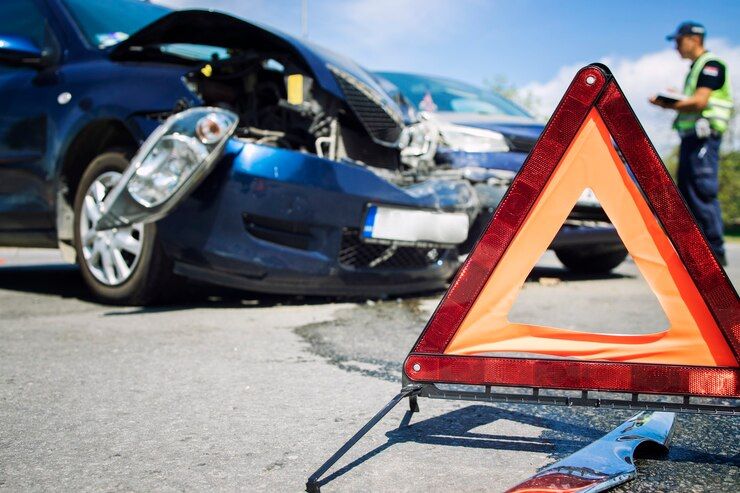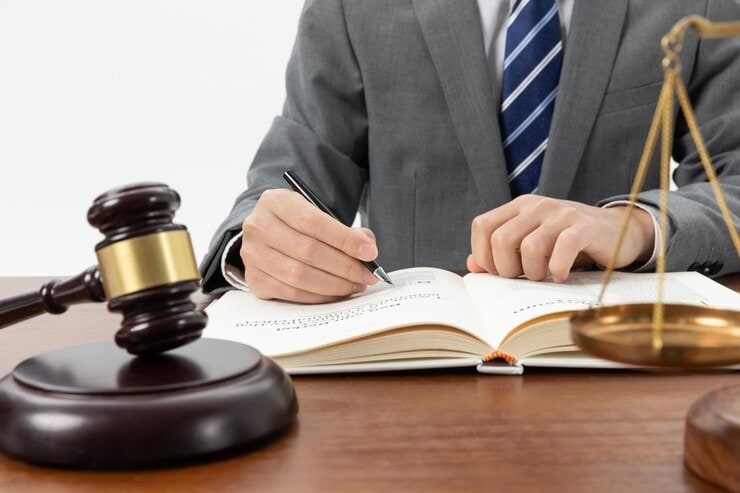
Using company vehicles is common in many industries, enabling employees to perform their duties efficiently. However, when accidents or damages occur to these vehicles, questions often arise about who is responsible for covering the repair costs. This article explores the nuances of whether employers can legally make their employees pay for damage to company vehicles and the considerations that come into play.
Who Will Pay for the Damages in a Work Vehicle Accident?
When a company vehicle is involved in an accident, the question of who will pay for the damages is a critical concern. Several factors come into play in determining the responsible party:
Employee’s Negligence: If the employee’s negligence or reckless behavior caused the accident, the employer might have grounds for seeking reimbursement. However, establishing negligence requires thoroughly examining the circumstances surrounding the accident.
Workers’ Compensation Coverage: If the car accident occurred while the employee performed job-related duties, workers’ compensation coverage may apply. In such cases, the employer’s insurance may cover the costs of repairing the company vehicle.
Vicarious Liability: As mentioned earlier, vicarious liability can make the employer responsible for damages resulting from the employee’s actions during the course of employment.
Insurance Policies: The insurance company offers different types of coverage held by both the employer and the employee can significantly impact the financial responsibility for damages. If the employee has personal auto insurance, it may cover the damages to the company vehicle in certain situations.
Employment Contracts: If the employment contract outlines the employee’s responsibility for damages to company property, the employer may have a legal basis for seeking compensation.
When Can An Employee Seek Workers’ Compensation?
Work-related injuries or accidents typically fall under the purview of workers’ compensation. However, the question of whether an employee can seek workers’ compensation for damage to a company vehicle hinges on the circumstances surrounding the incident.
If the employee’s car accident happened while the employee was performing job-related duties, workers’ compensation coverage might come into play. Establishing a clear connection between the accident and the employee’s responsibilities at the time is essential. For instance, if the employee was making a delivery, visiting a client, or attending a work-related event, the chances of qualifying for workers’ compensation increases.
Automatic Wage Deductions: What are Classed as ‘Wages’?
One concern employees may have is the possibility of automatic wage deductions to cover the costs of repairing a company vehicle. It’s crucial to understand what falls under the category of ‘wages’ in this context.
Wages typically include the agreed-upon salary or hourly pay outlined in the employment contract. However, deductions for damage to company property, such as a company vehicle, may not be automatically classified as lost wages. Employees have rights, including protection from unwarranted salary reductions for incidents beyond their control.
Is Causing Damage to Company Property a Disciplinary Issue?
Employers often have the authority to discipline employees for actions that negatively impact the company, and damaging a company vehicle could be considered such an action. However, the disciplinary measures’ severity depends on the accident’s circumstances.
If the employee’s negligence or reckless behavior led to the damage, the employer may take disciplinary action. On the other hand, if the accident occurred while the employee was dutifully performing job-related duties, the employer might be more understanding. Workplace policies are crucial in guiding employers and employees on the appropriate course of action in such situations.
Damage to Company Cars: The Role of Workplace Policies
Many companies have specific policies addressing the use and maintenance of company vehicles. These policies may outline expectations, responsibilities, and consequences in the event of an accident. Employers and employees need to be familiar with these policies, as they guide handling situations involving company vehicles.
Some policies may require employees to report accidents immediately, while others may provide detailed steps to follow after a collision. Understanding and adhering to these policies can influence how the employer approaches the situation and whether disciplinary action or automatic wage deductions are warranted.
Understanding Vicarious Liability in Company Vehicle Accidents
Vicarious liability is a legal concept that holds employers responsible for the actions of their employees during the course of employment. In the context of a company vehicle accident, the employer may be held liable for the damages if the employee was performing work duties when the accident occurred.
This legal principle is based on the idea that employers benefit from their employees’ work on the job. Therefore, they should also bear the responsibility for any harm caused by their employees during their employment. Vicarious liability can be a key factor in determining whether the employer or the employee is financially responsible for the damages to a company vehicle.
The Intersection of Employment Contracts and Company Vehicle Accidents
Employment contracts play a significant role in shaping the relationship between employers and employees. The terms and conditions outlined in these contracts may include provisions related to the use of company vehicles and the consequences of accidents.
Examining the employment contract is crucial when determining whether an employer can make an employee pay for damage to a company vehicle. If the contract states that employees are responsible for such damages, the employer may have a legal basis for seeking reimbursement. However, if the contract is silent on this matter, other legal principles, such as vicarious liability, may come into play.
How Can an Attorney Help?
Navigating the complexities of employer liability, workers’ compensation, and the legal ramifications of a company vehicle accident can be daunting. In such situations, seeking the assistance of an experienced attorney can be invaluable. Here’s how an attorney can help:
Legal Expertise and Guidance: Attorneys provide comprehensive guidance on the legal aspects of a company vehicle accident, offering informed advice based on their expertise in employment law and personal injury.
Reviewing Employment Contracts and Policies: Attorneys meticulously review contracts and policies, assessing terms related to vehicle use and liability to determine the legal standing of both parties.
Determining Liability and Responsibility: Attorneys assess accident circumstances, considering negligence, policy adherence, and vicarious liability principles to determine liability and responsibility.
Negotiating with Insurance Companies: Attorneys handle negotiations with insurance providers, ensuring clients’ interests are protected and pursuing fair compensation for damages.
Assisting with Workers’ Compensation Claims: Attorneys aid in filing and navigating workers’ compensation claims, ensuring appropriate medical care, compensation for lost wages, and coverage for related expenses.
Defending Against Automatic Wage Deductions: Attorneys advocate for employee rights, challenging the legality of automatic wage deductions and ensuring fair financial responsibility determination.
Litigation Support: Attorneys provide litigation support, preparing legal documents, representing clients in court, and presenting a compelling case for a favorable outcome.

Contact BLG for Legal Help
In company vehicle accidents, determining whether an employer can make an employee pay for damages is multifaceted. Various factors, including the circumstances of the accident, workers’ compensation coverage, vicarious liability, and the employment contract terms, all contribute to shaping the legal landscape.
Employees should be aware of their rights and obligations, while employers must navigate these situations with a clear understanding of the legal principles at play. Seeking legal guidance in the aftermath of a company vehicle accident is advisable, as it can help both parties navigate the complexities of liability and ensure a fair and just resolution.
If you find yourself entangled in the complexities of employer liability, workers’ compensation, and damage to company vehicles, the legal team at BLG is here to help. Our experienced attorneys specialize in navigating the intricacies of workplace-related legal matters.
Contact us today for a free consultation.
FAQs
Is an employee liable for damages to a company vehicle?
Generally, an employee may be held liable for damages to a company vehicle if the damage results from the employee’s negligence or misconduct. Liability can vary based on specific circumstances, employment contracts, and local laws.
Is the company liable for damages?
The company may be liable for damages to a company vehicle, especially if the damage occurred during employment or if the company is found negligent in maintaining the vehicle. Legal responsibility often depends on the specific details of the situation and relevant employment and insurance agreements.
Is an employer held liable for damages caused by an accident involving an employee?
Employers can be held liable for damages caused by an accident involving an employee if the accident occurred within the scope of employment. This is known as vicarious liability. However, the specific circumstances, local laws, and the nature of the employee’s actions will influence the extent of the employer’s liability.
Can an employee be personally liable for negligence?
Yes, an employee can be personally liable for negligence if their actions or behavior fall outside the scope of their employment duties and they act negligently, causing harm or damage. Personal liability will depend on factors such as the employee’s intent, actions, and the legal principles applicable in the specific jurisdiction.





